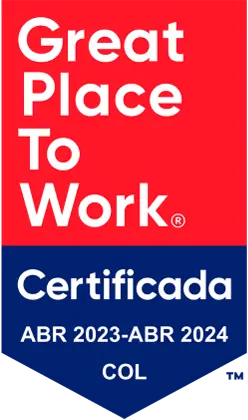La tecnología amigable está revolucionando la forma en que las empresas se aseguran de cumplir con todas las regulaciones y requisitos legales. Con un enfoque en la facilidad de uso y la automatización, estas herramientas están ayudando a las compañías a reducir los errores humanos y aumentar la eficiencia en la gestión del cumplimiento.
La tecnología amigable está revolucionando la forma en que las empresas se aseguran de cumplir con todas las regulaciones y requisitos legales. Con un enfoque en la facilidad de uso y la automatización, estas herramientas están ayudando a las compañías a reducir los errores humanos y aumentar la eficiencia en la gestión del cumplimiento.
Uno de los principales beneficios de la tecnología amigable es la capacidad de automatizar tareas administrativas y de cumplimiento, lo que permite a los empleados centrarse en tareas más estratégicas. Por ejemplo, un software de cumplimiento puede automatizar el seguimiento de vencimientos y alertas, lo que significa que el personal no tiene que recordar manualmente cumplir con las regulaciones. Además, las herramientas de automatización también pueden ayudar a reducir el riesgo de errores humanos, ya que se basan en reglas y procedimientos preestablecidos.
La tecnología amigable también hace que sea más fácil para las empresas mantenerse al día con las últimas regulaciones y requisitos legales. Muchas herramientas de cumplimiento cuentan con características de seguimiento y alertas en tiempo real, lo que significa que las compañías pueden recibir notificaciones inmediatas sobre cambios en las regulaciones y asegurarse de cumplir con ellas.
Además, una interfaz de usuario amigable también ayuda a los empleados a comprender y aplicar las regulaciones de manera eficiente, dado que es más sencillo para ellos navegar y entender las funcionalidades de la herramienta. esto reduce la curva de aprendizaje y aumenta la productividad.

Cómo garantizar el cumplimiento normativo en Colombia: una mirada a las regulaciones y herramientas disponibles
El cumplimiento normativo es un tema crítico en Colombia y en todo el mundo. La necesidad de cumplir con regulaciones y leyes existentes se ha vuelto cada vez más importante debido a la creciente complejidad de la economía global y la necesidad de proteger los intereses de los ciudadanos y las empresas.
En Colombia, el cumplimiento normativo es regulado por el Gobierno a través de una serie de leyes y regulaciones, incluyendo el Código Penal y la Ley de Lavado de Activos. Estas leyes establecen las regulaciones para prevenir y detectar el lavado de activos y el financiamiento del terrorismo, y establecen sanciones para aquellos que no cumplen con las regulaciones.
El Gobierno Colombiano también ha creado una serie de sistemas para ayudar a las empresas y entidades a cumplir con las regulaciones, incluyendo SARLAFT (Sistema de Alertas de Lavado de Activos y Financiamiento del Terrorismo) y SAGRILAFT (Sistema de Alertas de Recuperación de Activos de Lavado de Activos y Financiamiento del Terrorismo). Estos sistemas son diseñados para ayudar a las empresas y entidades a detectar y prevenir el lavado de activos y el financiamiento del terrorismo, y establecen procedimientos para la presentación de informes y declaraciones periódicas.
Además, el Gobierno ha creado una serie de programas de capacitación y educación para ayudar a las empresas y entidades a cumplir con las regulaciones. Estos programas incluyen cursos y talleres para capacitar a los empleados en las regulaciones y procedimientos relacionados con el cumplimiento normativo.
Porqué la automatización de la verificación de nombres en listas restrictivas es esencial para el cumplimiento normativo
La automatización de la verificación de nombres en listas negras es esencial para el cumplimiento normativo debido a varias razones:
- Detecta rápidamente a individuos o entidades sospechosas: La automatización permite verificar rápidamente la presencia de individuos o entidades en listas negras, lo que ayuda a detectar posibles actividades ilícitas de manera temprana y tomar medidas para evitarlas.
- Reducción de errores humanos: La automatización de esta tarea ayuda a reducir los errores humanos que pueden ocurrir al revisar manualmente grandes cantidades de datos, lo que garantiza una mayor precisión y confiabilidad en los resultados.
- Ahorro de tiempo y recursos: La automatización de la verificación de nombres en listas negras permite realizar esta tarea de manera más rápida y eficiente, lo que significa un ahorro de tiempo y recursos para la empresa.
- Cumplimiento normativo: Al verificar rápidamente y con precisión la presencia de individuos o entidades en listas negras, la automatización ayuda a garantizar el cumplimiento normativo y a evitar sanciones y multas por parte de las autoridades reguladoras.
- Reputación de la empresa: Al prevenir actividades ilícitas y cumplir con las regulaciones, la automatización de la verificación de nombres en listas negras ayuda a proteger la reputación de la empresa y a evitar daños a su imagen pública.
¿Qué es Analyzer y por qué debes tenerlo en tu empresa?
En un esfuerzo para garantizar la seguridad y transparencia en los negocios, las regulaciones internacionales y nacionales exigen que las empresas y profesionales realicen una adecuada verificación de la identidad de sus clientes. Este proceso es esencial para evaluar el riesgo potencial asociado a cada transacción.
Una de las medidas clave en este proceso es la verificación en listas restrictivas, la cual es obligatoria para una amplia variedad de empresas e industrias.
Al cumplir con estas regulaciones, se garantiza una mayor seguridad y transparencia en las transacciones, lo que mejora la confianza de clientes y contribuye al fortalecimiento de las relaciones comerciales.
Analyzer es la solución definitiva para garantizar el cumplimiento de todas las regulaciones de los entes de control y fiscalización en Latinoamérica
Analyzer ejecuta verificaciones precisas y automatizadas en tiempo real, garantizando mantener un alto nivel de gestión y cumplimiento normativo.
Analyzer integra una serie de algoritmos capaces de obtener información en tiempo real de las fuentes primarias. Así como el análisis completo de los perfiles en tansolo segundos



